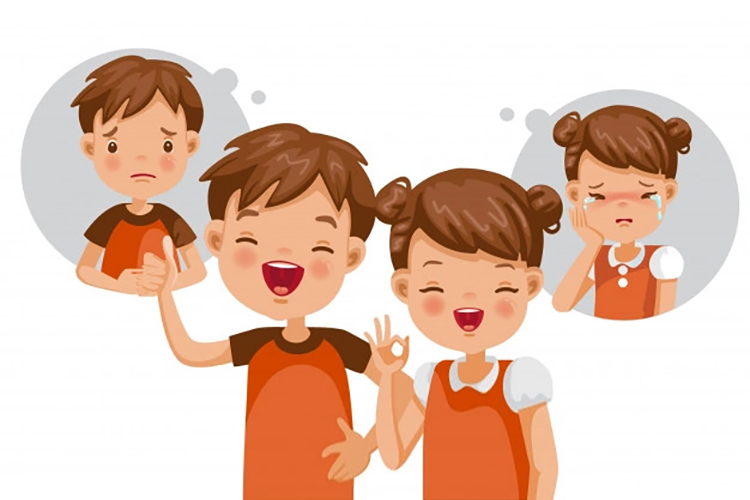Child’s Mental Health Care During Pandemic
- Observe your child. Look for signs such as extra clinginess, tearfulness, nightmares or temper tantrums. Sometimes you may observe certain behavior that they have outgrown to showcase now again, for e.g. bedwetting or thumb sucking. Older children or teenagers may have headaches, stomach aches, forgetfulness, reduced appetite, reduced energy, socially withdrawn .If it is more than usual then we need to talk to them.
- If a child already has a mental health condition, then their levels of distress maybe even higher. So here we may have to consult a psychiatrist or a therapist.
- Sometimes mental health issues in children show even after the pandemic is over. They may be someone who have lost a parent in this pandemic, or a child whose caregiver is in quarantine so there is a sudden detachment, also children who are getting constant exposure to negativities such as news about death tolls, news about how there’s no vaccine yet, etc, or even children of households who aren’t being able to provide enough food or stable shelter, are at risk of lasting mental health impacts.
- So how do we help our children?
- Ensuring physical and emotional safety: Emotional safety includes providing accurate information in age-appropriate language. We have to tell them about safety measures, dos and don’ts but we have to show them hope that it’s going to be alright. If they’re using phones to play- please be aware of the kind of information they maybe exposed to and do take necessary precautions. Still if anything is making them feel restless then we have to talk to them about their feelings. These will help the child feel protected and believe in positive feelings such as hope, love, care etc.
- Re-establishing a familiar routine: It could be a mixture of fun activities such as helping in cleaning or cooking, story-telling, painting, etc. This will make the child feel structured about the day, and when lockdown will be over, the child will be able to adjust better with school life again.
- Having a quality family time: Parents are looked upon by a child as the strongest people ever, and at this time when children may feel vulnerable, letting them believe that they always have their parents with them, will give them strength to cope.
- If they are feeling scared, listen to them: Children sometimes need a listening ear, and it is important for adults to have patience and listen to their issues. We can listen to their issues and then provide a solution, such as meditation, deep breathing, yoga etc which would make them feel relaxed.
If at all you see a child, showing symptoms of extreme
stress for more than a month then kindly take them to a mental health
expert.




